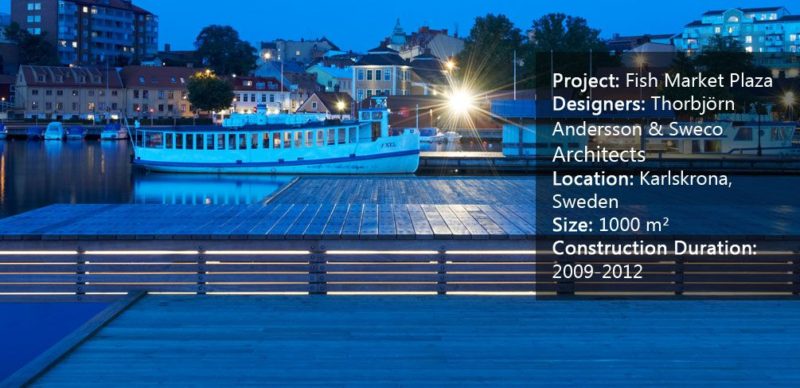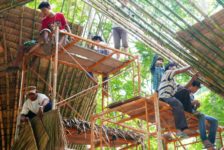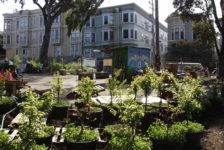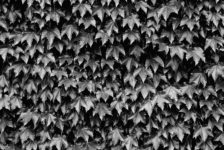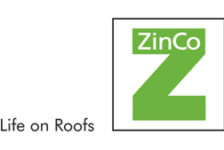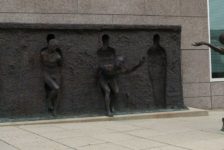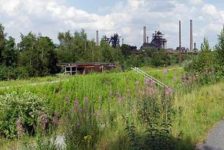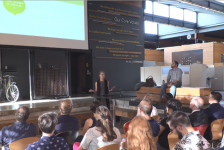Fish Market Plaza by Thorbjörn Andersson & Sweco Architects in Karlskrona, Sweden. Does a spatial quality create a place or does it happen the other way around? Perhaps it works both ways. In the case of Fish Market Square, or “Fiskertorget Plaza” in Swedish, the place still exists under the same name, but everything else related to the market function is long gone. The Fish Market Plaza is located in Karlskrona, Sweden. Karlskrona, which means Carolu’s Crown, has always been an important harbor. Nowadays, it is also one of the most picturesque cities in Sweden and is protected as a World UNESCO Heritage Site.
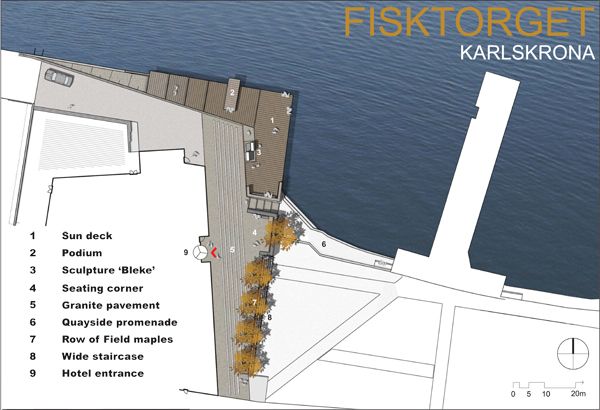
Fish Market Plaza plan by Thorbjörn Andersson & Sweco Architects
The Fish Market Plaza
There used to be a Market Hall for selling fish where the square is now, but it was torn down in the 1960s. The only thing left after the demolition was the name of the site and a gap of potential waiting to be shaped. In 2009, a new intervention started to take shape, designed by Thorbjörn Andersson & Sweco Architects. The main purpose of the design has been to reconnect the city with the water’s edge and create a new spot for meeting and leisure.
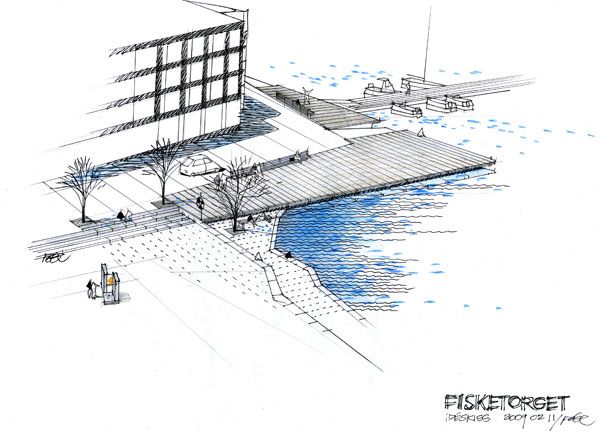
Sketch of the Fish Market Plaza. Image courtesy of Thorbjörn Andersson & Sweco Architects
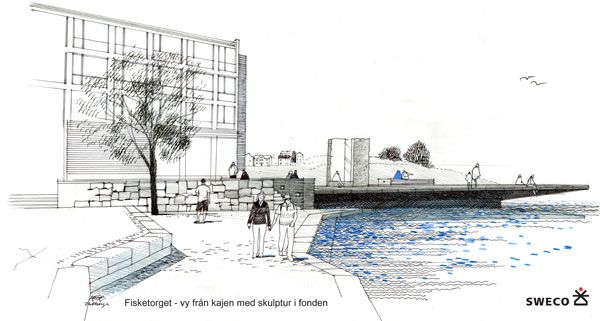
Sketch of the Fish Market Plaza. Image courtesy of Thorbjörn Andersson & Sweco Architects
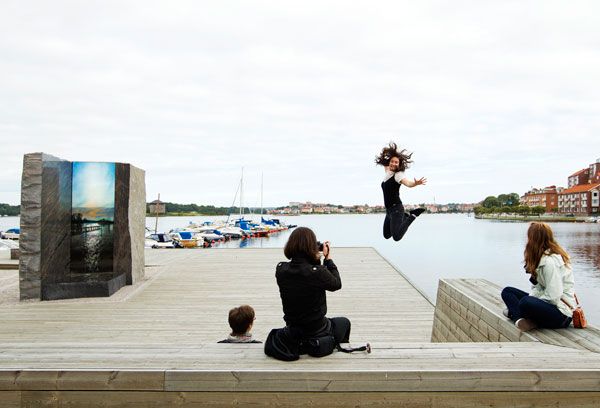
The Fish Market Plaza. Image courtesy of Thorbjörn Andersson & Sweco Architects
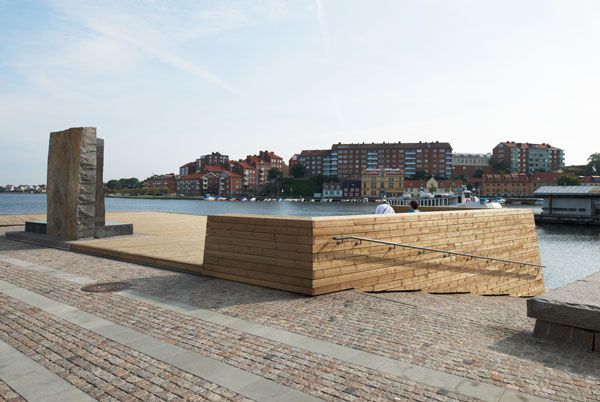
The Fish Market Plaza. Image courtesy of Thorbjörn Andersson & Sweco Architects
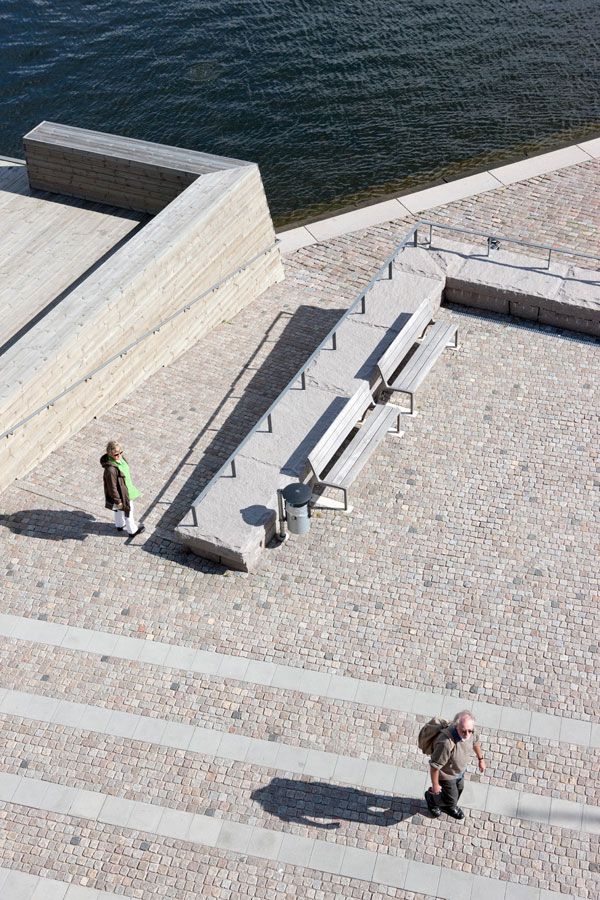
The Fish Market Plaza. Image courtesy of Thorbjörn Andersson & Sweco Architects
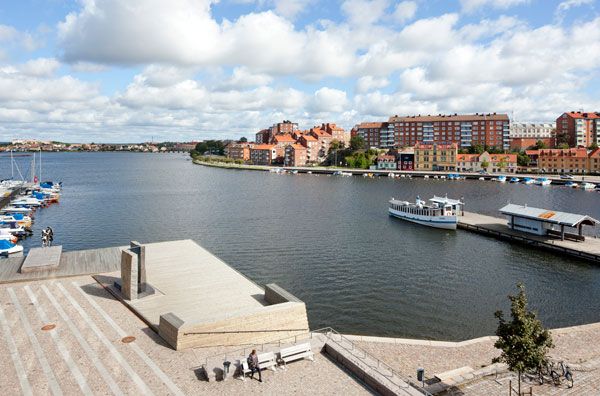
The Fish Market Plaza. Image courtesy of Thorbjörn Andersson & Sweco Architects
- 5 Incredible Displays of Landscape Architecture in Switzerland
- Discover the Ancient Secrets of the Physic Garden
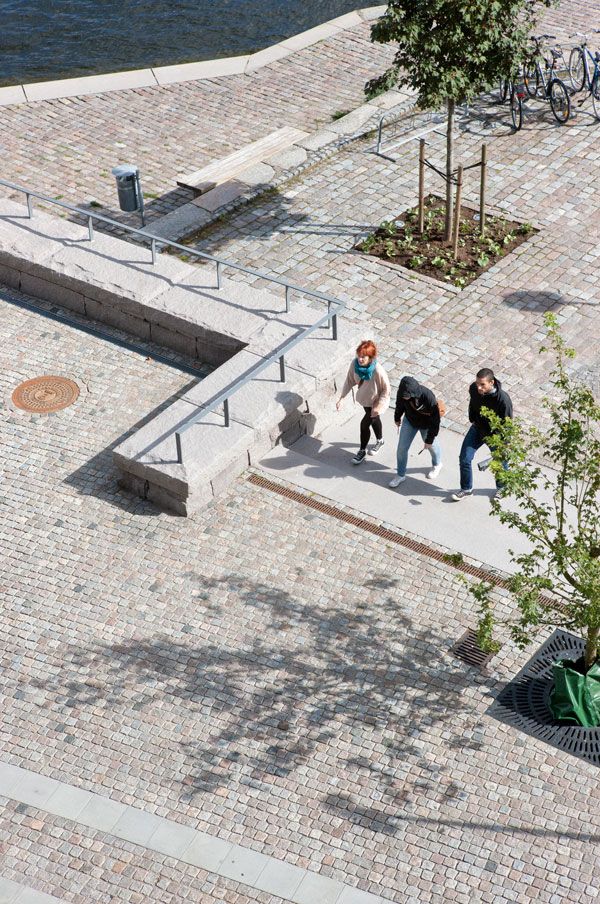
The Fish Market Plaza. Image courtesy of Thorbjörn Andersson & Sweco Architects
The Fish Market Plaza – 60 Years in the Making
What is astonishing about the Fish Square Market is that although the Market Hall was demolished almost 60 years ago, it took this long for the city to redefine the space’s identity. It could have been due to financial and other reasons. However, I could not help but think that the Fish Market has been more than a hall for the city’s perception of this particular place.
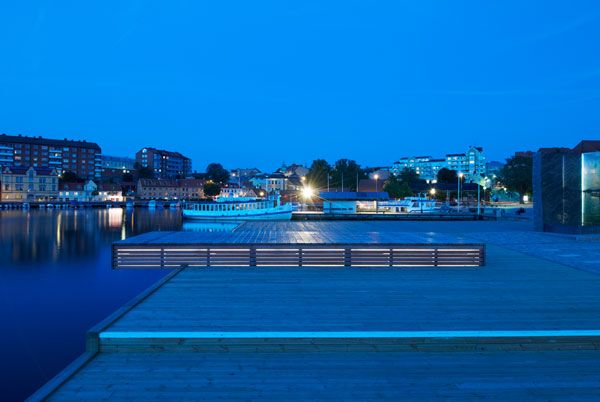
The Fish Market Plaza. Image courtesy of Thorbjörn Andersson & Sweco Architects
- Urban Design by Alex Krieger
- The Urban Design Handbook: Techniques and Working Methods (Second Edition) by Urban Design Associates
Article by Eleni Tsirintani Return to Homepage
Published in Blog


